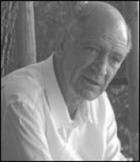
Virno was born in Naples, but spent his childhood and adolescence in Genoa. He had his first political experiences on the occasion of the social movements of 1968; the association between personal fulfillment and the fight against capitalism, typical of the artiste criticism of the 1960s, would then constitute one of the crucial reasons of his political philosophy. He moved to Rome with his family in the early 1970s, where he studied philosophy.
Simultaneously, Virno became involved in the labor movements and militated in the Potere Operaio organization, a Marxist group involved in the mobilization of industrial workers; Potere Operaio, unlike the communist governments of the Soviet Union and China, sought to combine student and worker action in a program close to the original Marxian theory of criticism of work organization. Virno participated in the movement, organizing collective actions in the factories of northern Italy, until its dissolution in 1973.
In 1977 Virno presented his doctoral thesis on the concept of work and the theory of consciousness of Theodor Adorno, while actively participating in the '77 movement, where strong social action was organized around precarious workers and others excluded from the capitalist circuit. The Metropolis magazine, which founded Virno together with Oreste Scalzone and Franco Piperno, was partly the intellectual organ of the movement. Two years later, the Metropolis editorial board was imprisoned, accused of belonging to the Red Brigades.
The three years of preventive detention were a time of intense intellectual activity for Virno and others involved. After being sentenced in 1982 to 12 years in prison for "subversive activities and armed band constitution" (although the charges of belonging to the Red Brigades were not verified), he appealed and was released pending trial in the second instance; in 1987 he would be finally acquitted, along with Piperno. The experience of those years would be devoted to the organization of the Luogo Comune publication, dedicated to the analysis of life forms in the social situation of postfordism; in 1993 he would leave the post of editor of Luogo Commune to teach philosophy at the University of Urbino. In 1996 he was invited by the University of Montreal; upon his return, he held the chair of philosophy of language, semiotics and ethics of communication at the University of Cosenza (Calabria).
Wikipedia




